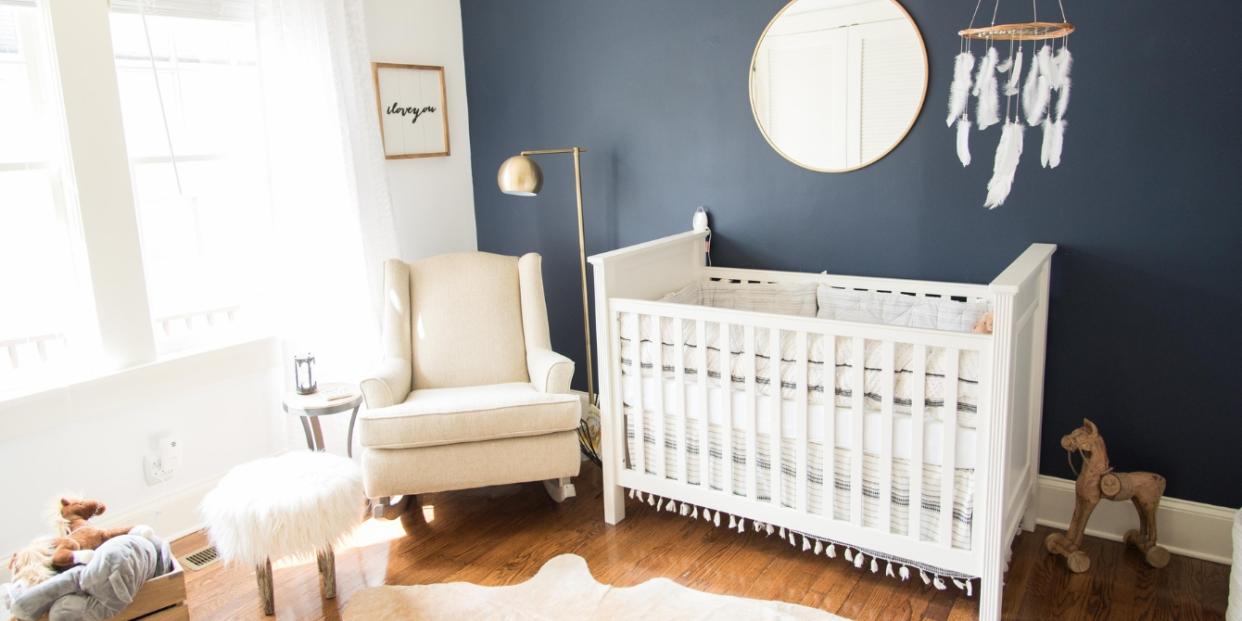This is the most overlooked nursery item

You can have the cutest crib, the softest blankets and the most state-of-the-art baby monitor. But if the air in your baby’s nursery is contaminated, all the must-have items on your registry matter less. Poor air quality could jeopardize your little one’s health, potentially leading to long-term health issues.
In other words, having an air purifier in the nursery is often underestimated. While it may not be the first item you think of, it’s crucial to include one on your registry.
Over 90% of global citizens breathe in air tainted with high levels of PM2.5, a fine particle that poses significant health risks. Such particles are often released from common household items, like certain types of paint or cleaning agents, which can unknowingly contaminate your baby’s environment.
Recent research in “Environmental Health Perspectives” found that air purifiers equipped with high efficiency particulate air (HEPA) filters could help offset the harmful effects of PM2.5 on infant brain development. Moreover, they can be a godsend for those little ones predisposed to allergies, some evidence shows. Interestingly, studies also link poor indoor air quality to disruptions in an infant’s gut health, further emphasizing the necessity of clean air.
“Air purifiers clean the air and reduce pollutant particles—including dust, smoke, mold and pollen—from the air in a specific room,” says Andy Fox, Filtration and Indoor Air Quality Specialist at 3M. “Placing a purifier in your nursery is a great option for better clean-air circulation in a space where you and your baby will be spending a lot of time.” And then don’t forget to change the filter regularly. “We recommend a change at least every 90 days for 1” filters; and every 12 months for 4”, 5” and 6” filters,” Fox notes.
Beyond ensuring the air is clean, understanding the unique breathing patterns of babies can be helpful for any new parent. Infants have a distinctly faster breathing rate compared to older kids and adults. Typically, a newborn takes 40 to 60 breaths per minute, though this rate decreases during sleep. Some might exhibit periodic breathing, characterized by rapid breaths followed by short pauses. Recognizing these patterns is essential, as any significant deviation might indicate a health concern. Rapid breathing, exceeding 60 breaths per minute, flaring nostrils or visible chest retraction could be signs of respiratory distress. Also, listen for unusual grunts, coughs, or a bluish skin tone, indicating oxygen deprivation.
Incorporating an air purifier isn’t just about enhancing comfort; it’s about ensuring your baby’s environment is as safe and conducive to their growth as possible. As you start nesting and preparing the nursery for your little one’s arrival, consider it as much a necessity as that adorable crib or that plush glider.


